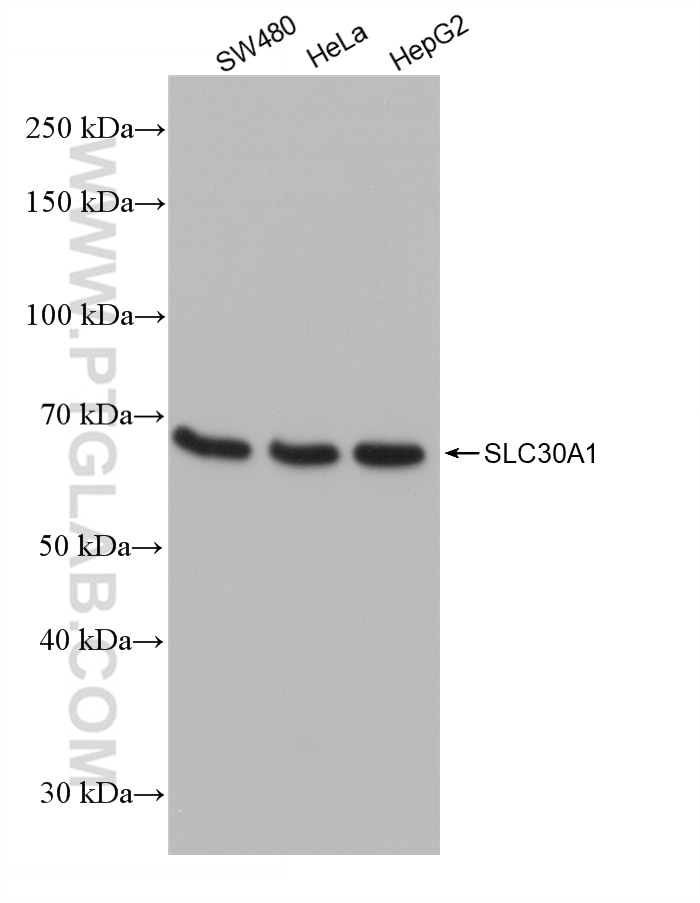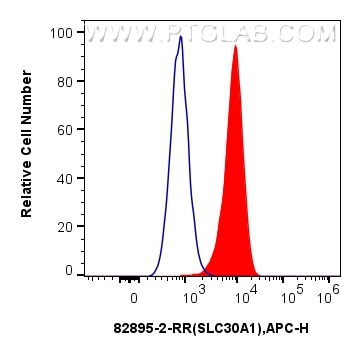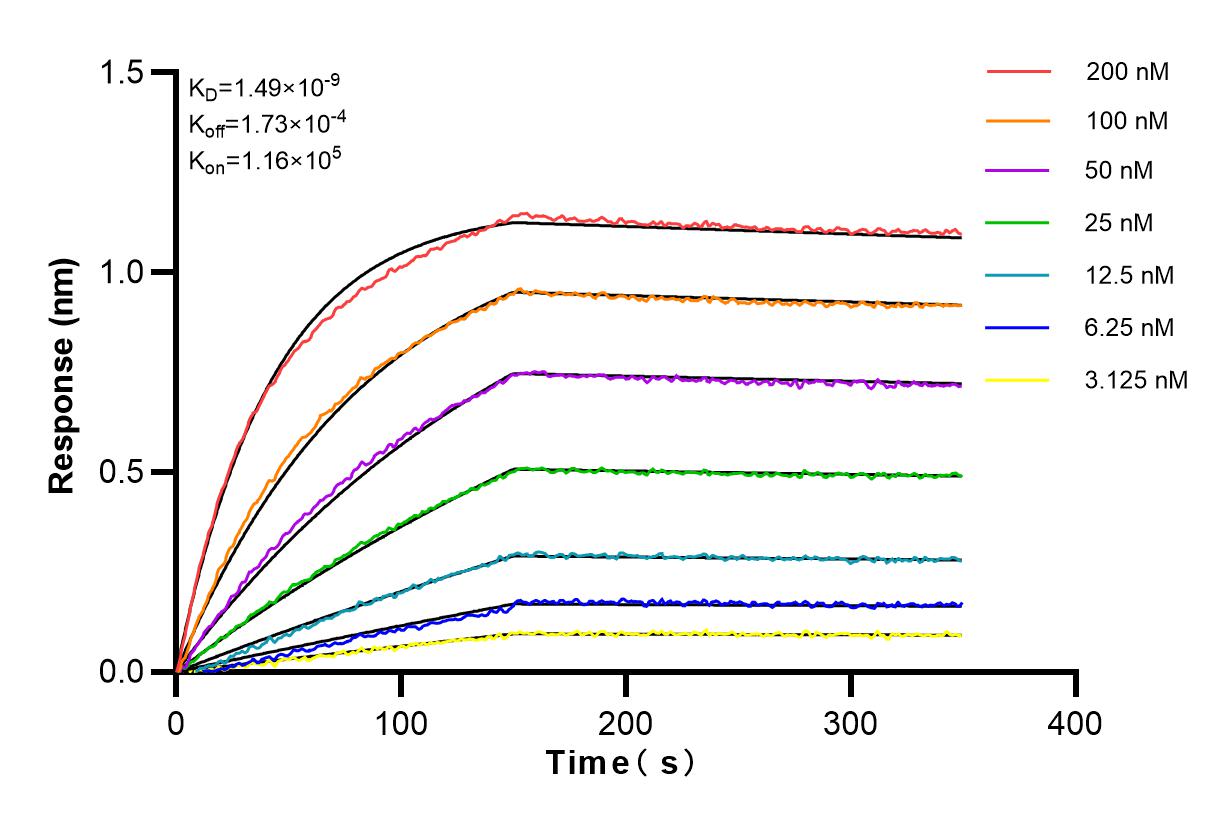Validation Data Gallery
Tested Applications
| Positive WB detected in | SW480 cells, HeLa cells, HepG2 cells |
| Positive FC (Intra) detected in | U2OS cells |
Recommended dilution
| Application | Dilution |
|---|---|
| Western Blot (WB) | WB : 1:2000-1:10000 |
| Flow Cytometry (FC) (INTRA) | FC (INTRA) : 0.25 ug per 10^6 cells in a 100 µl suspension |
| It is recommended that this reagent should be titrated in each testing system to obtain optimal results. | |
| Sample-dependent, Check data in validation data gallery. | |
Product Information
82895-2-RR targets SLC30A1 in WB, FC (Intra), ELISA applications and shows reactivity with human samples.
| Tested Reactivity | human |
| Host / Isotype | Rabbit / IgG |
| Class | Recombinant |
| Type | Antibody |
| Immunogen |
CatNo: Ag18567 Product name: Recombinant human SLC30A1 protein Source: e coli.-derived, PGEX-4T Tag: GST Domain: 330-507 aa of BC121015 Sequence: YTTYPLLKESALILLQTVPKQIDIRNLIKELRNVEGVEEVHELHVWQLAGSRIIATAHIKCEDPTSYMEVAKTIKDVFHNHGIHATTIQPEFASVGSKSSVVPCELACRTQCALKQCCGTLPQAPSGKDAEKTPAVSISCLELSNNLEKKPRRTKAENIPAVVIEIKNMPNKQPESSL 相同性解析による交差性が予測される生物種 |
| Full Name | solute carrier family 30 (zinc transporter), member 1 |
| Calculated molecular weight | 507 aa, 55 kDa |
| Observed molecular weight | 63~75 kDa |
| GenBank accession number | BC121015 |
| Gene Symbol | SLC30A1 |
| Gene ID (NCBI) | 7779 |
| RRID | AB_3670624 |
| Conjugate | Unconjugated |
| Form | |
| Form | Liquid |
| Purification Method | Protein A purification |
| UNIPROT ID | Q9Y6M5 |
| Storage Buffer | PBS with 0.02% sodium azide and 50% glycerol{{ptg:BufferTemp}}7.3 |
| Storage Conditions | Store at -20°C. Stable for one year after shipment. Aliquoting is unnecessary for -20oC storage. |
Background Information
Zinc transporter 1 (ZNT1), also known as SLC30A1, is the only zinc transporter predominantly located on the plasma membrane, where it plays a pivotal role exporting cytosolic zinc to the extracellular space. SLC30A1 expression is posttranslationally regulated by cellular zinc status and can be N-glycosylated on Asn299 in the extracellular loop between transmembrane domains (PMID: 15451416, 18936201). Western analysis detected a higher band at ~63 kDa than the expected molecular mass, which could be attributed to the properties of the cytosolic histidine-rich loop (PMID: 31471319).
Protocols
| Product Specific Protocols | |
|---|---|
| WB protocol for SLC30A1 antibody 82895-2-RR | Download protocol |
| Standard Protocols | |
|---|---|
| Click here to view our Standard Protocols |



